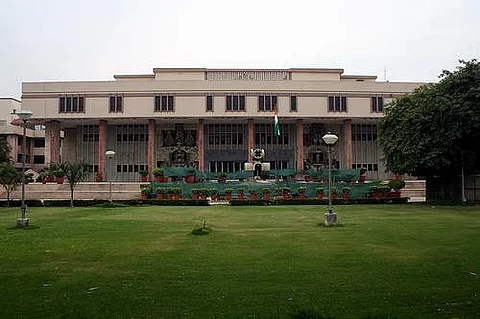

Cheating in exams is a serious issue that can undermine the integrity of the education system and negatively impact the progress of a country. The Delhi High Court has recognised this in a recent case involving an engineering student who was found using unfair means during an end-term examination, as per a report by PTI.
Copying and cheating while appearing for exams is like the plague which can ruin society and the education system and those using such unfair means have to be dealt with a heavy hand, said the Delhi High Court, as stated in a report by PTI. The court stated cheating is like a plague that can ruin society and the educational system, and that those who resort to unfair means to gain an advantage over hardworking students should be dealt with a heavy hand.
These remarks were made by the court while hearing an appeal against an order of the single judge refusing to interfere with the cancellation of the examinations undertaken by the appellant, an engineering student. Sharing views, the bench which also comprises Justice Subramonium Prasad said in a recent order that "Copying and cheating in examinations are like plagues. It is a pandemic which can ruin society and the educational system of any country. If the same is left unchecked or if leniency is shown, the same can have a deleterious effect. For any country's progress, the integrity of the educational system has to be infallible".
Further, it said, "Persons using unfair means to steal a march over students who work hard to prove their worth have to be dealt with a heavy hand."
Moreover, observing that the integrity of the education system has to be infallible for any country's progress, it said, "Students, who resort to unfair means and get away with it, cannot build this nation. They cannot be dealt with leniently and they should be made to learn a lesson not to adopt unfair means in their life."
Present case
The court said the students could get hold of question papers and share the questions and answers amongst themselves, which gave them an unfair advantage over those who burned the midnight oil to prepare for the exams. Following this, it asserted the conduct of all stakeholders has to reflect unblemished commitment whether it is paper setters maintaining utmost confidentiality or students not cheating or invigilators being vigilant etc.
Moreover, the court opined that the appellant's university was, in fact, lenient in not rusticating those who had cheated. Therefore, whether it is paper setters maintaining utmost confidentiality, students not cheating, invigilators being vigilant, examiners doing their job with utmost alacrity knowing that the future of students is in their hands or Universities and colleges not tampering with results, the conduct of all stakeholders has to reflect the commitment and also be unblemished, the court stressed.
Meanwhile, the Apex Court in a decision has stressed the need to maintain purity and strict discipline in the conduct of examinations, deeming it to be necessary for the overall progress of the nation, noted the court. Based on these, the court dismissed the appeal and said the order of the single judge did not require any interference, as stated in a report by PTI.
